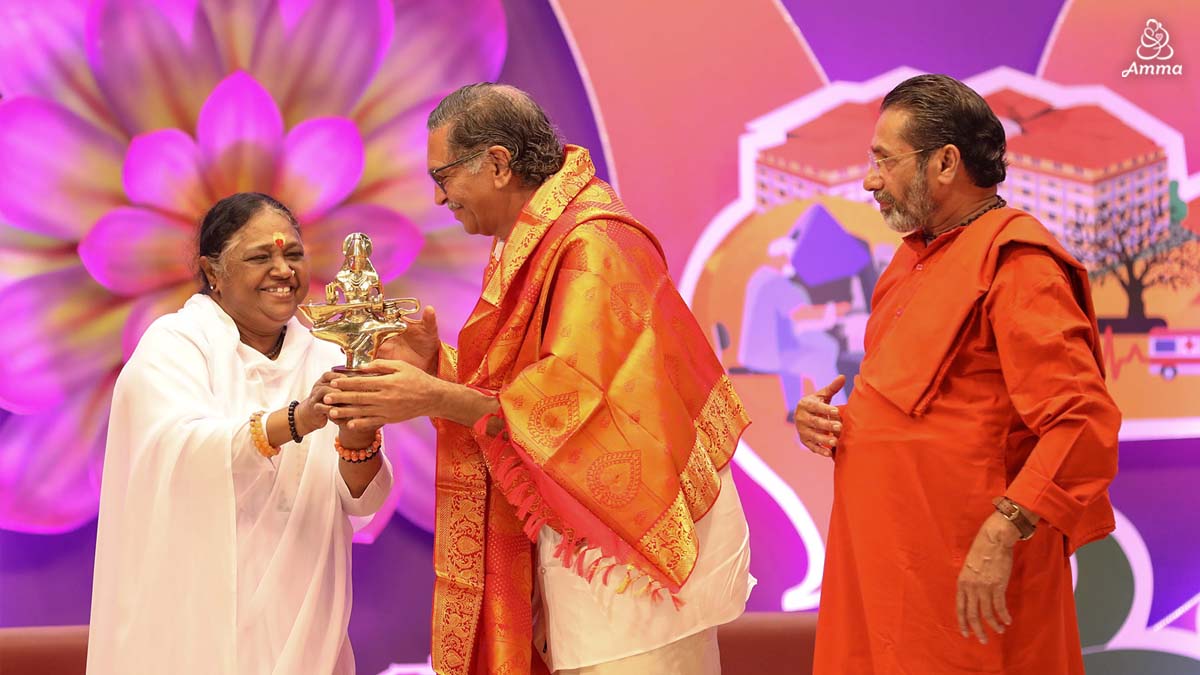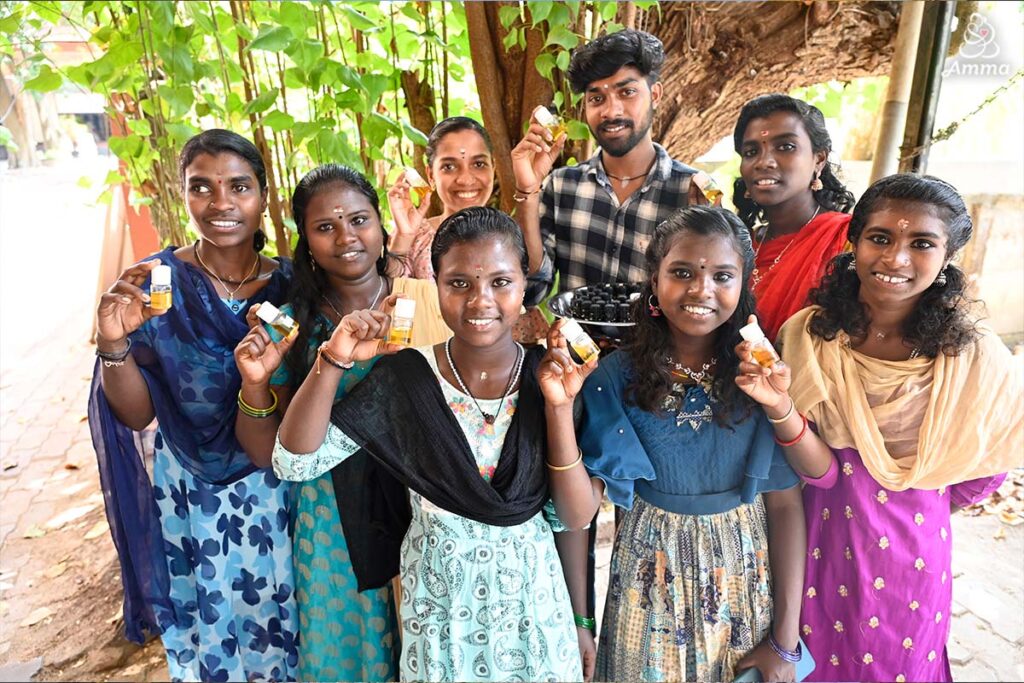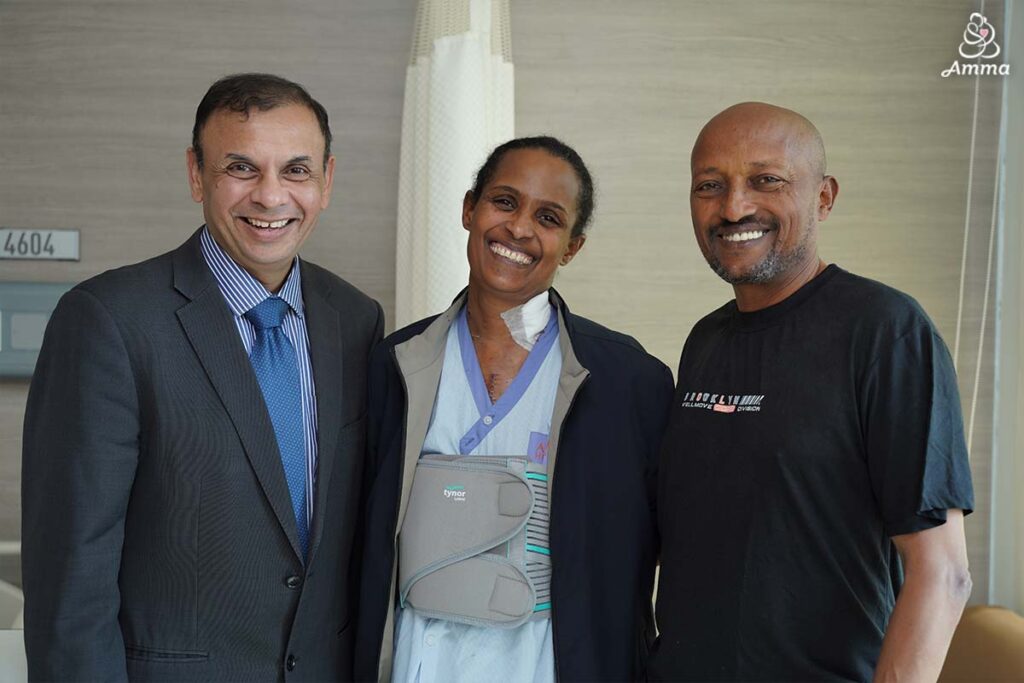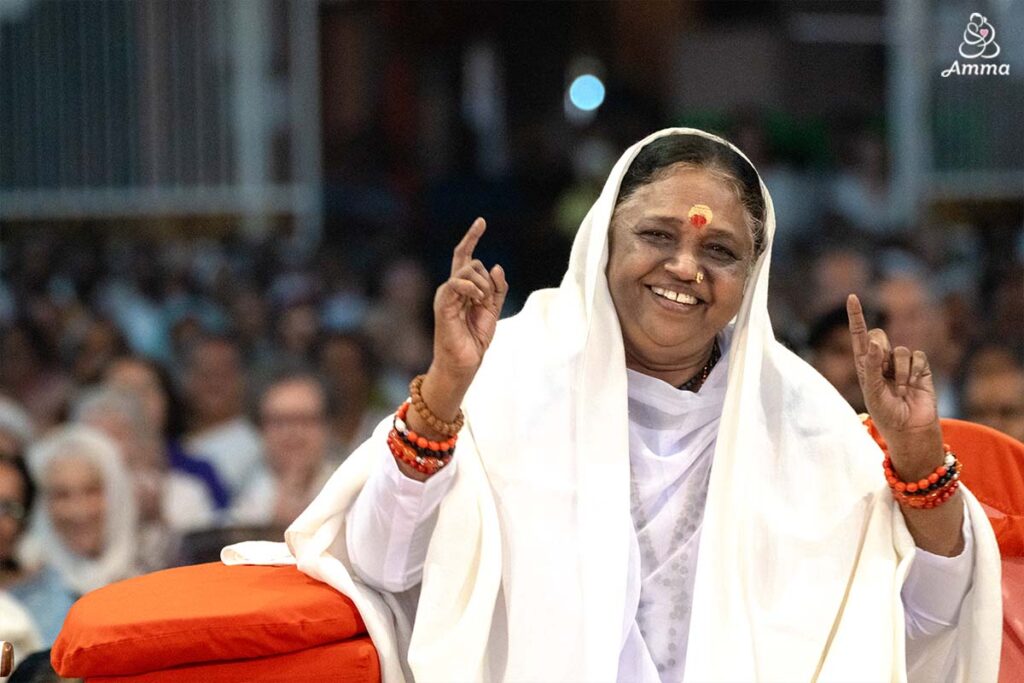During her birthday event, Amma awarded this year’s Amritakeerti Puraskaram to the eminent Malayali poet and scholar, Professor V. Madhusoodanan Nair. With a joyful face, he sincerely expressed his gratitude to Amma.
Since 2001, the award has honoured distinguished personalities for their significant and inspiring contributions to Indian literature, culture, and Vedic knowledge. It comprises a cash prize of ₹1,23,456 and a sculpture of Goddess Saraswati crafted by the celebrated artist Namboothiri.
“This recognition honours Prof. Nair’s exceptional contribution to literature, especially his work in blending Vedic philosophical ideas with modern imagery and symbols in an elegant writing style,” said Swami Turiyamritananda Puri, one of Amma’s Senior Disciples and also an inspiring and exquisite poet.
“I have always felt that love is an ocean of nectar that dissolves the entire universe. When love transforms into nectar, it becomes bliss—ultimate bliss. That’s how this place becomes Amritapuri. In the Taittiriya Aranyaka, the body is described as amritena avritham purim—meaning ‘a place covered with nectar,'” Prof. Nair shared in his acceptance speech.
“All the bodies seated here are, in that sense, Amritapuri. All living beings in the universe should be Amritapuri as well. All the knowledge, wisdom, and wealth of humanity should be directed toward this objective. Without any distinction, every living being, including humans, is an Amritapuri of the same divine being. The place where such a message is imparted to all is filled with nectar.”
If my eyes are free of hatred and filled with love, then the whole world will seem sweet to me. If my perspectives are clouded, the world will appear poisonous.
Prof. V. Madhusoodanan Nair
Prof. Nair continued by envisioning a world united in love:
“If the whole world unites in one music, if the entire universe merges into one symphony of love, there will be no wars, no riots, no conflicts. My prayer is that every human being becomes a glorious soul—someone who carries the most suffering along with them, holding their hand, ensuring even the most wounded and lame lamb reaches the other side. This is what I have attempted to present in my poems.
“I bow my head in gratitude and humility for the recognition of these efforts, these sincere literary works. I pray that Amma remains with us for ages to come, with her perennial love, teaching the world the many great stories of love. I hope this organisation continues forever, offering solace, happiness, and support to those who suffer. The world will only be truly beautiful when we unite all human beings, without discrimination.”
He offered a beautiful metaphor, illustrating how one’s perspective shapes their experience of the world:
“If my eyes are free of hatred and filled with love, then the whole world will seem sweet to me. If my perspectives are clouded, the world will appear poisonous. My prayer is, ‘Let the world be sweet.’ If everyone merges into the same melody of love, the whole world will remain beautiful. My prayer is, ‘May the world be beautiful like this.’”
Prof. Nair served as Professor and Head of the Malayalam Department at St. Xavier’s College, Thiruvananthapuram. He has been recognised with numerous accolades, including the Sahitya Akademi Award by the Government of India and the Kerala Sahitya Akademi Award.
His notable works such as Samayaakaashangalil Ramayana teertham, Valmiki Ramayanam (Sanskrit with Malayalam commentary), Vaakkinte Vishwaroopam, and Naaraanathu Bhraantan reflect his profound scholarship.
In addition to his academic achievements, Prof. Nair has played key roles in various esteemed organizations, serving as a member of the Kendra Sahitya Akademi Advisory Committee, the governing body of the Kerala Sahitya Akademi, and as Chairman of the Kumaran Asan National Cultural Institute.
The award committee was chaired by Swami Amritaswarupananda Puri, Vice-Chairman of Mata Amritanandamayi Math (MAM), and included Swami Turiyamritananda Puri as Trustee of MAM; Dr. K.S. Radhakrishnan; Dr. Lakshmi Kumari; and Sri P. Narayana Kurup.





